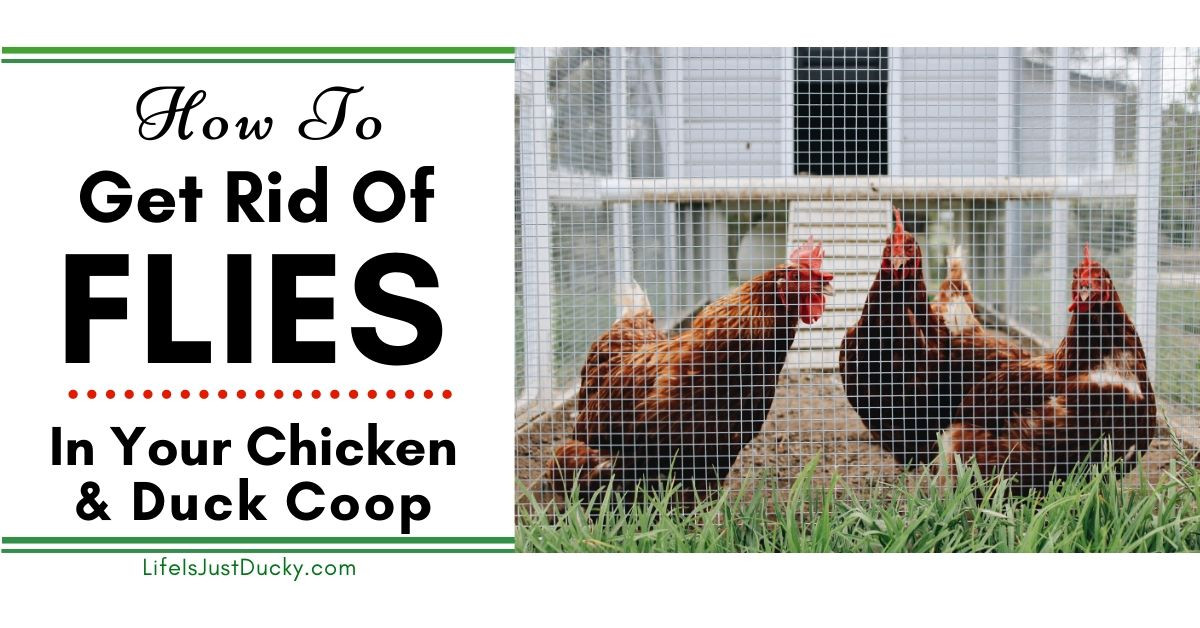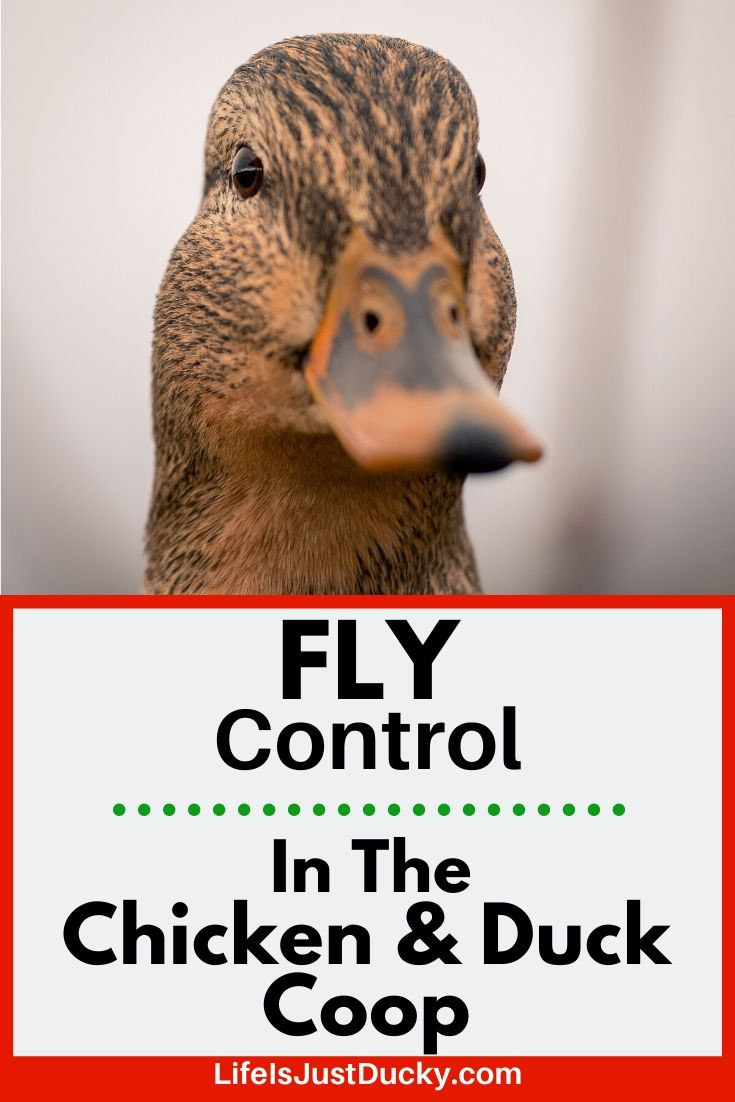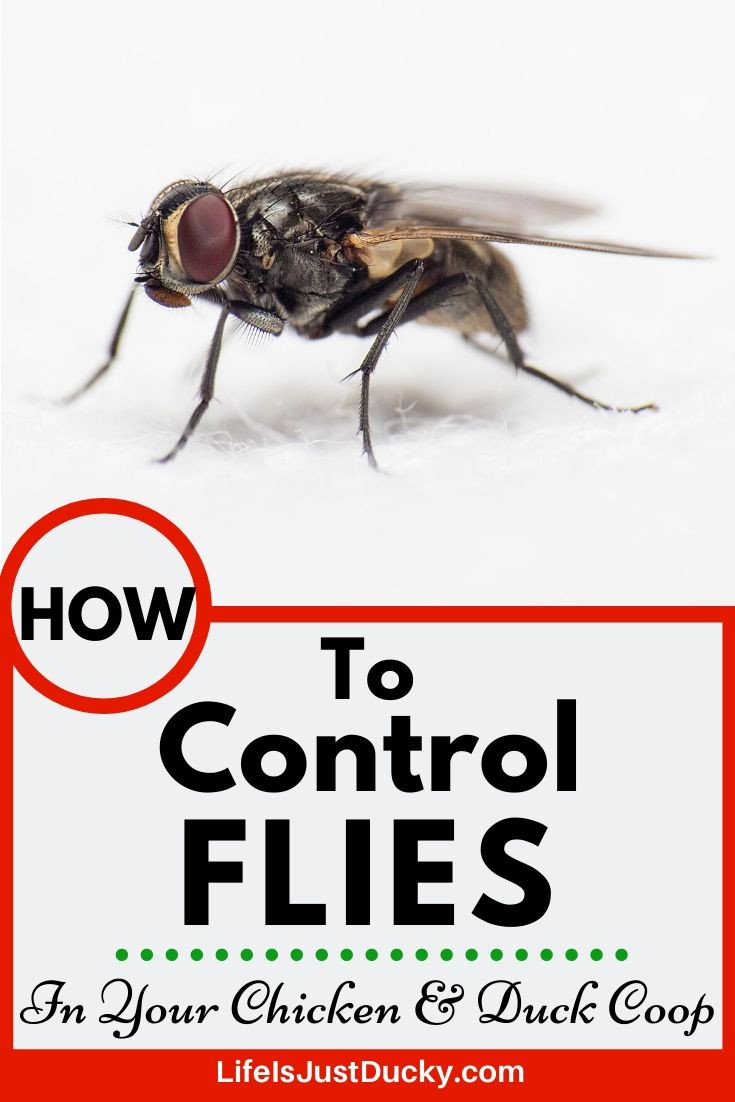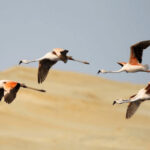Do Ducks Eat Flies? Yes, ducks do eat flies, and they can be quite effective at it! At flyermedia.net, we explore the fascinating relationship between ducks, their diet, and how they can help manage pests on your property, offering insights relevant to both aviation enthusiasts and those interested in sustainable living. Let’s dive into the world of ducks, insects, and natural pest control in the backyard.
1. Understanding Duck Diet: What Do Ducks Eat?
Ducks are omnivores, meaning they consume both plant and animal matter. Their diet in the wild and in domestic settings is incredibly diverse. So, what exactly makes up a duck’s diet?
- Aquatic Plants: Ducks frequently feed on submerged vegetation like duckweed, algae, and various pond plants.
- Insects: Insects, larvae, and other small invertebrates form a significant part of their diet, especially for ducklings who need the protein for growth.
- Grains and Seeds: Ducks also consume grains, seeds, and nuts that they find in fields or are provided by humans.
- Amphibians and Fish: Some duck species also consume small fish, tadpoles, and frogs.
2. Do Ducks Eat Flies? Yes, and Here’s Why It Matters
Yes, ducks do eat flies, and this behavior is beneficial for several reasons. Flies are a common nuisance around farms and homesteads, and ducks can help control their populations naturally.
Flies as a Food Source for Ducks
Flies and their larvae are a readily available source of protein for ducks. Ducks actively hunt for these insects, snapping them up whenever they get the chance. The nutritional content of flies, particularly fly larvae, makes them an excellent addition to a duck’s diet.
Natural Pest Control
By eating flies, ducks provide natural pest control, reducing the need for chemical insecticides. This is particularly valuable in organic farming and backyard homesteading, where maintaining a healthy and balanced ecosystem is crucial.
Improved Hygiene
Fly control helps improve the overall hygiene of your property. Fewer flies mean a reduced risk of disease transmission to both your poultry and your family. Ducks contribute to a cleaner environment simply by following their natural feeding instincts.
 Duck eating a fly, highlighting the role of ducks in pest control
Duck eating a fly, highlighting the role of ducks in pest control
3. How Ducks Hunt Flies: Techniques and Strategies
Ducks have developed several techniques for hunting flies and other insects. Their methods are both efficient and entertaining to watch.
Aerial Snapping
Ducks are surprisingly adept at catching flies mid-air. They use their keen eyesight to spot flying insects and quickly snap them up with their bills.
Ground Foraging
Ducks also forage for fly larvae and pupae on the ground. They use their bills to sift through manure, compost, and other organic matter, seeking out these hidden delicacies.
Water Surface Feeding
Some duck species feed on flies that land on the water surface. They skim the water with their bills, capturing any insects that come within reach.
4. The Benefits of Ducks in Fly Control: A Natural Solution
Using ducks for fly control offers numerous benefits, especially when compared to other methods like chemical insecticides.
Eco-Friendly
Ducks provide an eco-friendly solution to fly control. They don’t introduce harmful chemicals into the environment and contribute to a balanced ecosystem.
Cost-Effective
Maintaining ducks for pest control can be cost-effective in the long run. Once you have set up their living space and provide basic care, they naturally help manage fly populations without requiring ongoing expenses for insecticides.
Dual Purpose
Ducks offer a dual purpose on your property. In addition to controlling pests, they also provide eggs and can be raised for meat. This makes them a valuable asset for any homestead.
Entertainment Value
Watching ducks hunt for flies is entertaining. Their antics and natural behaviors can bring joy and a sense of connection to nature.
5. Incorporating Ducks into Your Pest Management Strategy
If you’re considering adding ducks to your property for fly control, there are several factors to consider.
Choosing the Right Duck Breed
Some duck breeds are better foragers than others. Indian Runners and Khaki Campbells are known for their active foraging habits and can be particularly effective at controlling fly populations.
Setting Up Their Living Space
Ducks need a safe and comfortable living space. This includes a coop for shelter, a secure run for protection, and access to water for swimming and bathing.
Supervising Their Activities
While ducks are generally good at self-regulation, it’s essential to supervise their activities, especially when they are first introduced to a new environment. This ensures they stay safe and don’t cause unintended damage.
Providing a Balanced Diet
Supplement their fly-eating habits with a balanced diet to ensure they receive all the nutrients they need. Commercial duck feed, supplemented with greens and other vegetables, can help keep them healthy and productive.
6. Why Your Chicken Coop Attracts Flies?
Chicken coops often become breeding grounds for flies due to several factors related to their design and maintenance. Understanding these reasons can help you manage fly populations effectively.
Manure Accumulation
Chicken manure is a prime breeding ground for flies. The moist, nutrient-rich environment provides an ideal setting for flies to lay their eggs and for larvae to develop.
Feed Spillage
Spilled chicken feed can also attract flies. Rotting food provides another source of nutrients for fly larvae.
Moisture
Excessive moisture in the coop creates a favorable environment for flies. Damp bedding and poor drainage contribute to this problem.
Poor Ventilation
Inadequate ventilation can trap odors and moisture, making the coop more attractive to flies.
 Chicken coop with good ventilation and cleanliness
Chicken coop with good ventilation and cleanliness
7. Can My Chickens Eat Flies?
Yes, chickens can and do eat flies. Like ducks, they are opportunistic eaters and will consume flies and their larvae when they have the chance.
Benefits of Chickens Eating Flies
- Protein Source: Flies provide a valuable source of protein for chickens.
- Pest Control: Chickens help reduce fly populations around the coop.
- Natural Behavior: Eating insects is a natural and enriching behavior for chickens.
Limitations of Chickens in Fly Control
While chickens can help control flies, they may not be as effective as ducks. Chickens tend to scratch and peck at the ground, which can disturb the environment and make it less appealing to flies.
8. Effective Steps To Control Flies
Controlling flies in and around your chicken or duck coop involves several strategies. Here are some effective steps to manage fly populations:
Maintain Cleanliness
Regularly clean the coop to remove manure and spilled feed. This deprives flies of their breeding and feeding grounds.
Improve Ventilation
Ensure good airflow in the coop to reduce moisture and odors. Proper ventilation makes the environment less attractive to flies.
Use the Deep Litter Method
The deep litter method involves layering bedding materials in the coop and allowing them to compost in place. This can help reduce odors and fly breeding, but it requires careful management to prevent excessive moisture.
Apply Diatomaceous Earth (DE)
Diatomaceous earth is a natural substance made from fossilized algae. It can be sprinkled in the coop to kill fly larvae and other insects.
Employ Fly Traps
Fly traps can be used to capture adult flies. These traps come in various designs, including sticky traps and bait traps.
Introduce Fly Predators
Fly predators, such as tiny wasps that lay their eggs inside fly pupae, can be introduced to control fly populations naturally.
9. What Are Flies Attracted To?
Understanding what attracts flies is crucial for preventing infestations. Flies are drawn to several things commonly found around homesteads:
Organic Waste
Decomposing organic matter, such as manure, rotting food, and compost, attracts flies.
Moisture
Flies need water to reproduce, so damp environments are particularly attractive.
Odors
Strong odors, especially those associated with decay, can draw flies from long distances.
Sugary Substances
Sweet substances, such as spilled juice or fruit, can also attract flies.
10. Flies Hate Cleanliness
Maintaining cleanliness is one of the most effective ways to deter flies. Regular cleaning and proper waste management can significantly reduce fly populations.
Clean Up Manure
Remove manure from the coop and surrounding areas regularly. Compost it properly to reduce odors and fly breeding.
Store Feed Properly
Store chicken and duck feed in airtight containers to prevent spills and keep it dry. This reduces the availability of food for fly larvae.
Eliminate Standing Water
Eliminate sources of standing water around the coop and yard. This deprives flies of the moisture they need to reproduce.
 Duck foraging in a clean and well-maintained environment
Duck foraging in a clean and well-maintained environment
11. Why Is It Important To Get Rid Of Flies?
Getting rid of flies is essential for several reasons, including health, hygiene, and overall comfort.
Disease Transmission
Flies can carry and transmit diseases to both animals and humans. They pick up pathogens from manure and other contaminated sources and then deposit them on food and surfaces.
Nuisance
Flies are a nuisance. Their buzzing and presence can be irritating and disruptive.
Economic Impact
In agricultural settings, fly infestations can lead to reduced productivity and economic losses.
Aesthetic Reasons
Large fly populations are unsightly and can create a negative impression of your property.
12. Repelling Flies From Your Chicken Coop
In addition to cleanliness, there are several ways to repel flies from your chicken coop using natural methods.
Herbs
Certain herbs have natural fly-repelling properties. Planting these herbs around the coop can help keep flies away.
- Basil: Basil is a common herb that repels flies.
- Lavender: Lavender has a pleasant scent that flies dislike.
- Mint: Mint is another effective fly repellent.
- Rosemary: Rosemary is a hardy herb that deters flies.
Essential Oils
Essential oils can be used to create a natural fly repellent spray. Some effective oils include:
- Peppermint Oil: Peppermint oil has a strong scent that repels flies.
- Eucalyptus Oil: Eucalyptus oil is another effective fly repellent.
- Citronella Oil: Citronella oil is commonly used to repel mosquitoes and can also deter flies.
Sweet PDZ
Sprinkling Sweet PDZ under the roosts can help absorb moisture and control odors, making the coop less attractive to flies.
13. Keep The Air Moving In Your Coop
Flies don’t like wind, and keeping the air moving in your coop can discourage them from lingering.
Fans
Using fans to circulate air in the coop can help keep flies away. Fans also help dry out the environment, making it less favorable for fly breeding.
Natural Ventilation
Ensure the coop has adequate natural ventilation. Open windows and vents can help keep the air moving and reduce moisture.
14. Make A Natural Pest Spray
Creating your own natural pest spray is an effective way to control flies without using harsh chemicals.
Marigold and Vinegar Spray
Blend marigolds with vinegar to create a natural spray that repels flies.
Lavender, Peppermint, and Alcohol Spray
Combine lavender, peppermint, rubbing alcohol, and water for a refreshing and effective fly repellent.
Mint and Water Spray
A simple spray made from mint and water can help keep flies away.
15. Trap The Flies In Your Coop
Fly traps are a useful tool for capturing adult flies and reducing their populations.
Fly Sticky Tapes
Fly sticky tapes are an old and reliable method for catching flies. Hang them near doorways and in areas where flies are abundant.
Captivator Fly Trap
The Captivator Fly Trap uses a stinky attractant to lure flies into the trap. It is non-toxic and safe to use around livestock.
 Fly trap filled with captured flies
Fly trap filled with captured flies
16. Fly Predators
Fly predators are tiny wasps that lay their eggs inside fly pupae, killing the flies before they can mature.
Benefits of Fly Predators
- Natural Control: Fly predators provide a natural and sustainable method of fly control.
- Safe for Livestock: They are safe to use around chickens and ducks.
- Effective: Fly predators can significantly reduce fly populations.
Encouraging Other Predators
Encourage other natural predators, such as birds and bats, to inhabit your property.
- Birdhouses: Put up birdhouses to attract birds that eat insects.
- Bat Houses: Build a bat house to provide shelter for bats, which consume large numbers of insects each night.
17. How To Get Rid Of Flies In Your Chicken Coop and Duck Coop
In summary, getting rid of flies in your chicken and duck coop involves a combination of strategies:
- Cleanliness: Keep the coop clean and dry.
- Repellents: Use herbs and natural sprays to deter flies.
- Airflow: Ensure good ventilation and use fans to keep the air moving.
- Traps: Employ fly traps to capture adult flies.
- Predators: Introduce fly predators and encourage other natural predators.
By implementing these strategies, you can create a fly-free environment for your poultry and enjoy a more pleasant homestead.
Now that you know ducks eat flies and how to manage fly populations effectively, visit flyermedia.net to discover more about sustainable living and the fascinating world of aviation.
Are you ready to take control of pests naturally and enjoy a cleaner, healthier environment? At flyermedia.net, we provide the insights and information you need to achieve your goals.
FAQ: Duck Diet and Fly Control
1. Are flies a good source of nutrition for ducks?
Yes, flies and their larvae are a good source of protein for ducks, especially ducklings.
2. Can ducks completely eliminate flies from my property?
While ducks can significantly reduce fly populations, they may not eliminate them entirely. A combination of strategies is often needed for effective fly control.
3. What duck breeds are best for fly control?
Indian Runners and Khaki Campbells are known for their active foraging habits and are effective at controlling fly populations.
4. How do I set up a proper living space for ducks?
Ducks need a safe coop, a secure run, and access to water for swimming and bathing.
5. Are there any risks to using ducks for fly control?
Supervise duck activities to ensure they don’t cause unintended damage and provide a balanced diet to keep them healthy.
6. Can chickens eat flies too?
Yes, chickens can and do eat flies, contributing to pest control around the coop.
7. What attracts flies to chicken coops?
Flies are attracted to manure, spilled feed, moisture, and poor ventilation in chicken coops.
8. How can I improve ventilation in my chicken coop?
Ensure good airflow by opening windows, vents, and using fans to circulate air.
9. Are natural pest sprays effective for fly control?
Yes, sprays made from herbs like marigold, lavender, and mint can help repel flies naturally.
10. What are fly predators, and how do they work?
Fly predators are tiny wasps that lay their eggs inside fly pupae, killing the flies before they mature and providing a natural method of fly control.
By exploring these questions and solutions, you can effectively integrate ducks into your pest management strategy and enjoy a cleaner, healthier environment. And for more insights into aviation and sustainable living, visit flyermedia.net today!
